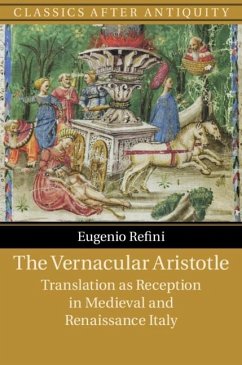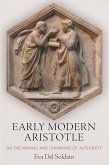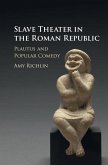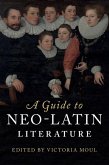This book explores the ways in which Aristotle's legacy was appropriated and reshaped by vernacular readers in Medieval and Renaissance Italy. It considers translation in a broad sense, looking at commentaries, compendia, rewritings, and abridgments alongside vernacular versions of Aristotle's works. Translation is thus taken as quintessential to the very notion of reception, with a focus on the dynamics - cultural, social, material - that informed the appropriation and reshaping of the 'master of those who know' on the part of vernacular readers between 1250 and 1500. By looking at the proactive and transformative nature of reception, this book challenges traditional narratives about the period and identifies the theory and practice of translation as a liminal space that facilitated the interaction between lay readers and the academic context while fostering the legitimation of the vernacular as a language suitable for philosophical discourse.
Dieser Download kann aus rechtlichen Gründen nur mit Rechnungsadresse in A, B, BG, CY, CZ, D, DK, EW, E, FIN, F, GR, HR, H, IRL, I, LT, L, LR, M, NL, PL, P, R, S, SLO, SK ausgeliefert werden.









